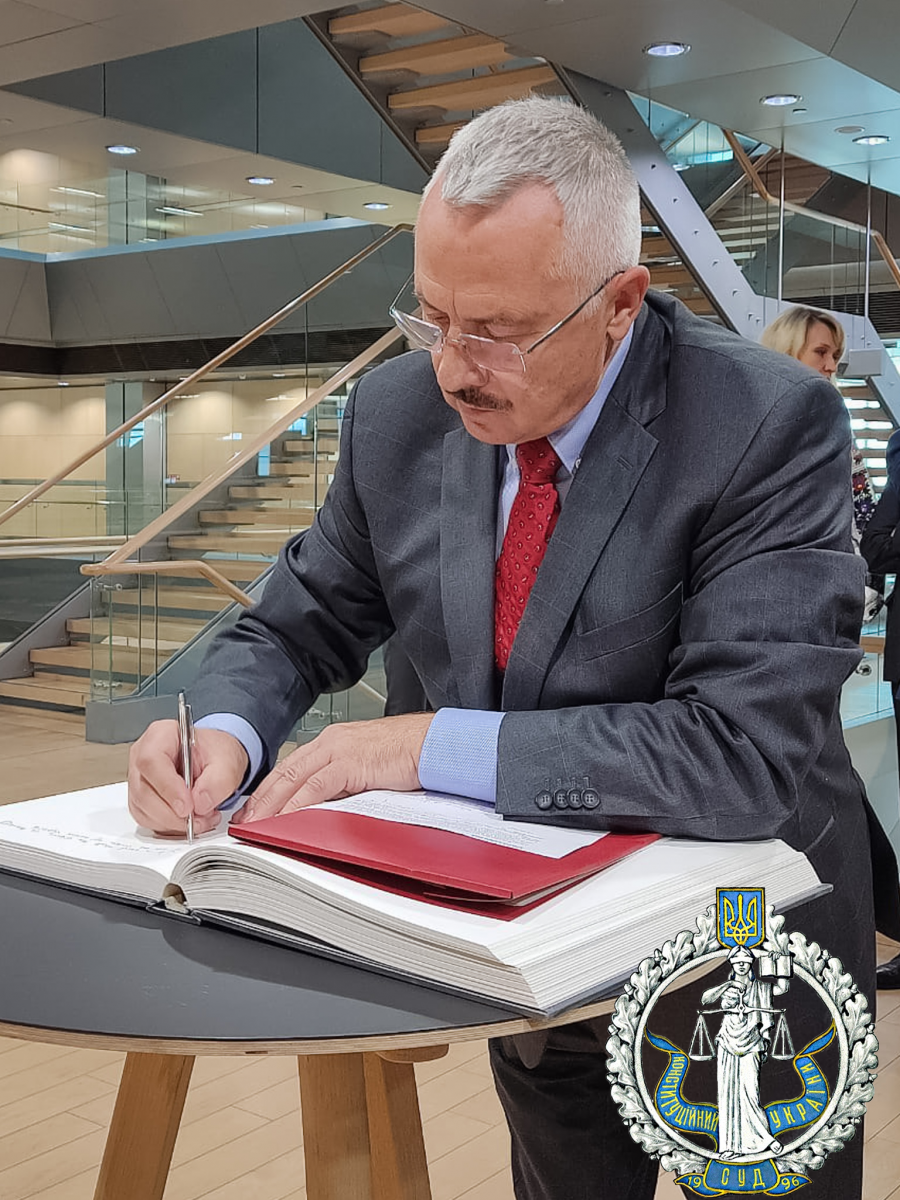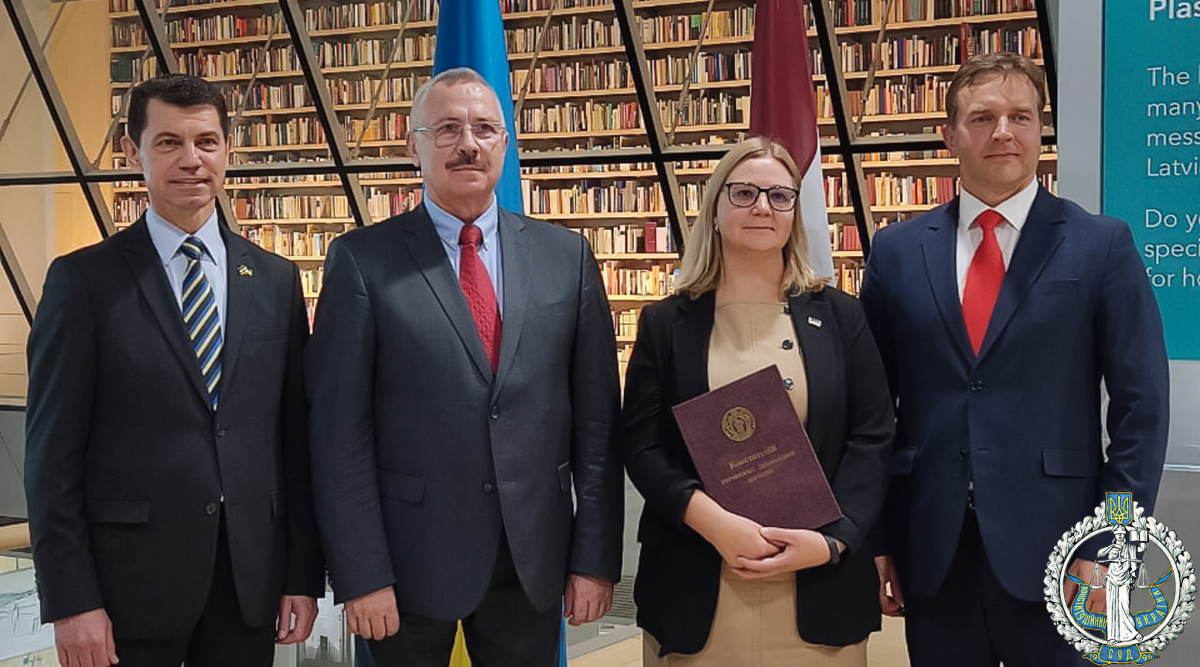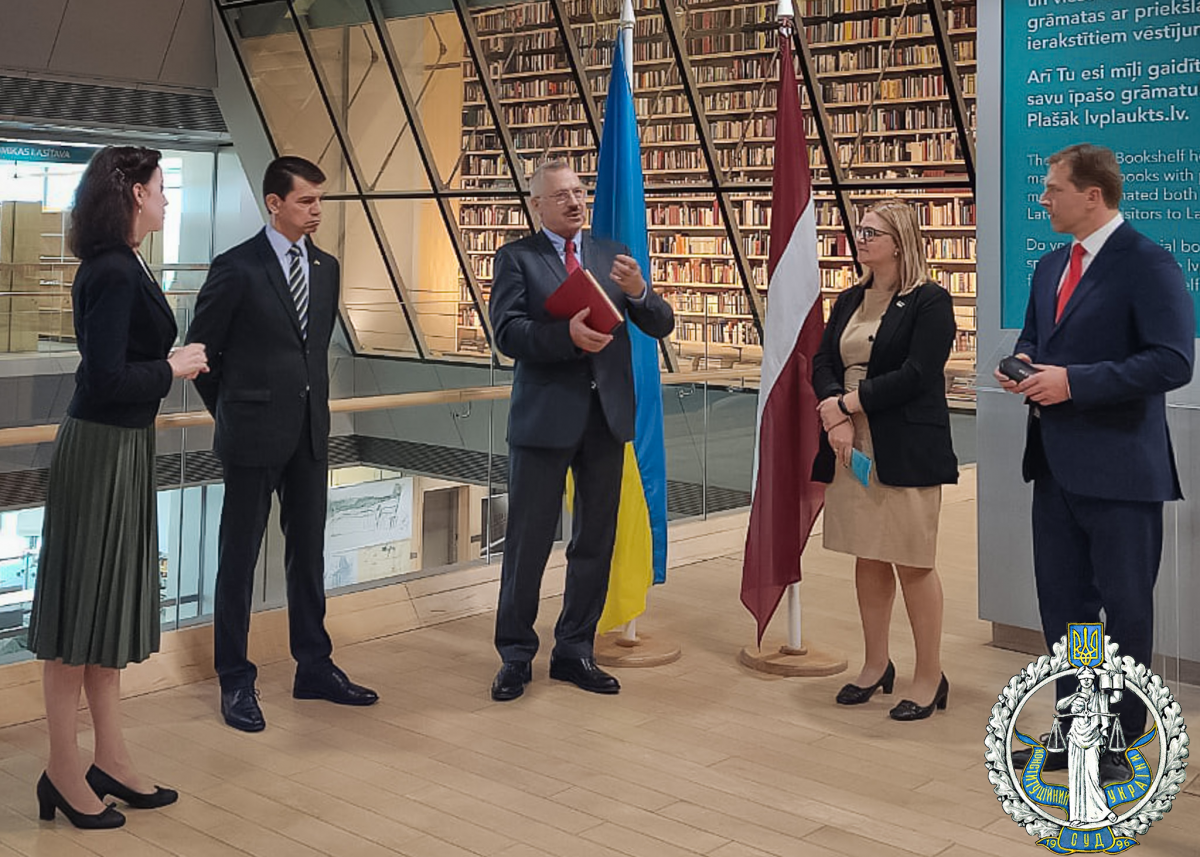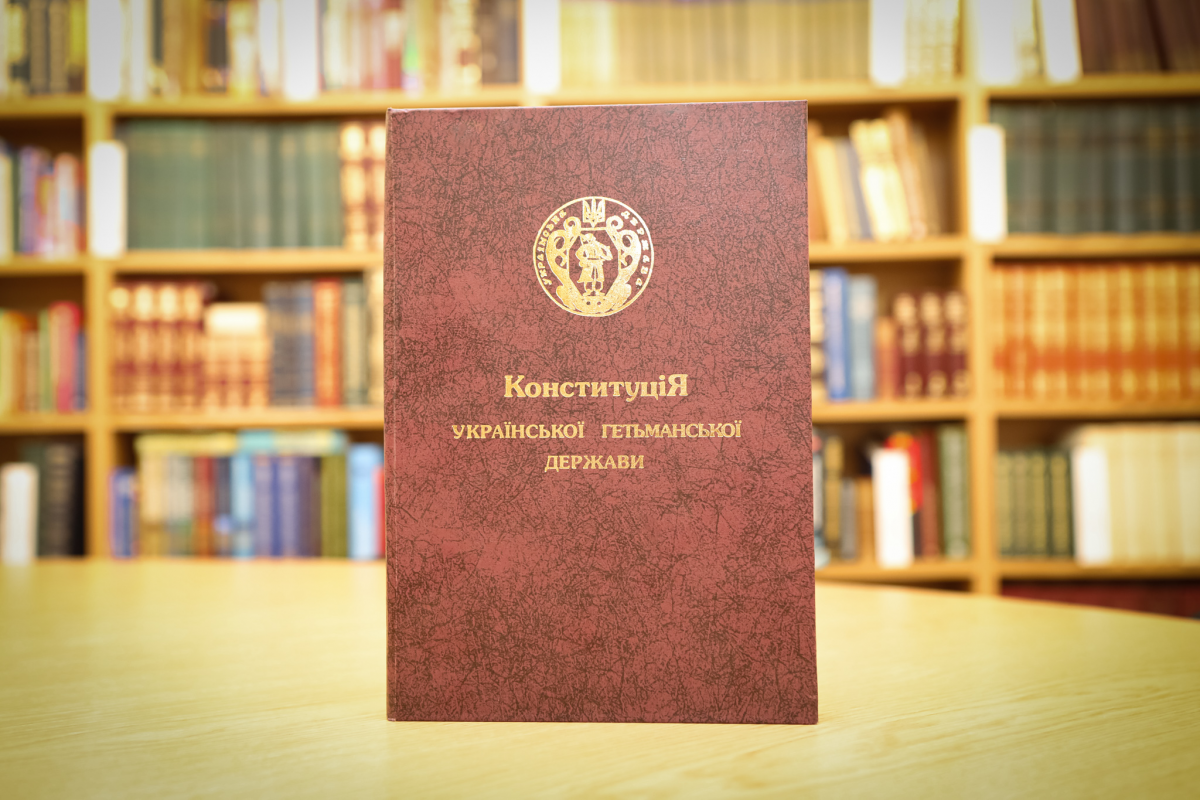September 14, 2022
On September 14, a delegation of the Constitutional Court of Ukraine arrived in Riga (the Republic of Latvia) upon the invitation of the Constitutional Court of the Republic of Latvia to participate in the International Conference “Sustainability as a Constitutional Value: Future Challenges”. The event was organised to celebrate the 25th anniversary of the Constitutional Court of the Republic of Latvia and the 100th anniversary of the Constitution of the Republic of Latvia and held on September 15-16, 2022.
The delegation of the Constitutional Court of Ukraine was composed of Serhiy Holovaty, Acting Chairman of the Constitutional Court of Ukraine, and Oksana Hryshchuk and Galyna Yurovska, judges of the Court.
A number of bilateral joint events were held as part of the working visit.
The first event took place on September 14 at the National Library of the Republic of Latvia. President of the Constitutional Court of the Republic of Latvia Aldis Laviņš and the Ambassador Extraordinary and Plenipotentiary of Ukraine to the Republic of Latvia Oleksandr Mishchenko attended the event.
During this event, Serhiy Holovaty, Acting Chairman of the Constitutional Court of Ukraine, presented and handed over a unique publication of the “Constitution of the Ukrainian Hetman State” to the Library fund, and made an entry to the Book of Honourary Guests of the National Library of the Republic of Latvia.
Serhiy Holovaty pointed out in his speech, “We decided to present you with a unique thing, a unique book. It is unique not because it cannot be bought anywhere; it was issued in 1997 to commemorate the first new Constitution of democratic, independent Ukraine. In Ukraine, what is published in the book is referred to as the “golden crown of Ukrainian constitutional heritage”.
This document, which is published here, is dated 1710. Although it never became legally binding, Ukraine refers to it as the Constitution. Why is it called the Constitution? The Muscovite Empire has enslaved Ukraine for nearly 60 years as of 1710. Ukraine was enslaved in 1654 and remained so until it gained independence in 1991. Despite the fact that Ukraine was enslaved at the time, the Cossack state embodied what was always inherent in the Cossack nation: will, freedom, and independence. As the Hetman-leader was elected in free elections, the Cossack state had elements of republicanism.
When Pylyp Orlyk was elected Hetman in 1710, he signed a document titled “Agreements on Rights and Freedoms between the newly elected Hetman and the Cossacks, and the chiefs of stuff”. That is, a treaty was signed. What is the purpose of a treaty, and what are its main goals? I will only mention two key ones: will, freedom and independence.
The Hetman was committed to free the Motherland Ukraine from Moscow's enslavement on behalf of the Zaporozhian Host. Along with fulfilling this task, the Hetman also took on the duty of reuniting the Ukrainian Orthodox Church with its mother church in Constantinople. Bring back what Ukraine once possessed before the Russian state captured the Ukrainian Autocephalous Church.
Freedom is the second component. The Hetman pledged to uphold the Cossacks' rights and liberties, refrain from abusing the power, not to exploit the Cossacks for his own purposes, obey all court decisions, and refrain from taking control over the Treasury. That is, he had a set of responsibilities aimed at limiting his Hetman power.
That is, there are two objectives: the first is to liberate oneself from the external enslaver — the dictatorship of Moscow — and the second is to protect one’s freedoms from those who attack it from within the sociopolitical system.
The Cossack nation, as written in this document, has never recognised the power of one person - autocracy. Moreover, as the Hetman’s son, Pylyp Orlyk, later wrote, “my father told me that the Cossacks never tolerated autocracy”.
That is the source of Ukrainians’ passion of freedom. This is the reason why Ukrainians reject despotism, authoritarianism, autocracy, and all other forms of slavery. In addition, since it was written in 1710, it predates both the Constitution of the United States of America and the Declaration of the Rights of the Man and of the Citizen. By doing so, we demonstrate that we are a people, which Putin denies.
After achieving independence in 1991, we continue to struggle for it at the expense of thousands of soldiers’ and civilians’ lives, shedding blood in daily fights for independence, freedom, to be free, and to determine our own destiny.
Although it is a piece of legal thought, this one refers to the liberalism, republicanism, and Christianity-based world-view that underpins Ukrainian life. These are the principles upon which the contemporary civilized world — the world of liberty, democracy, and human rights — is based.
I present this legal document to you with great pleasure, and I am grateful for the opportunity to share our cultural heritage.”
Audio recording of events at the National Library of the Republic of Latvia with participation of the delegation of the Constitutional Court of Ukraine is available at https://www.youtube.com.

the National Library of the Republic of Latvia

Serhiy Holovaty, Acting Chairman, the Constitutional Court of Ukraine,
Katrīna Kukaine, Director of the Development Department, the National Library of the Republic of Latvia
Aldis Laviņš, President, the Constitutional Court of the Republic of Latvia



